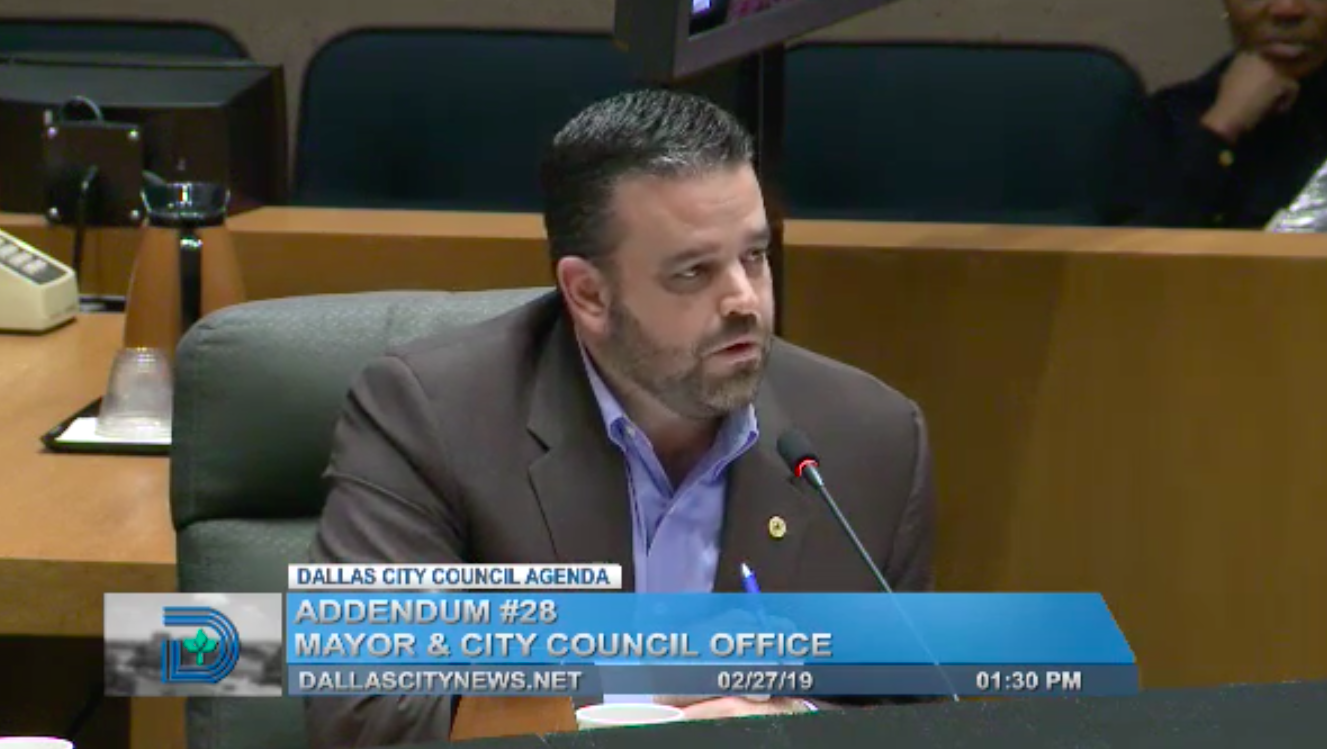The Dallas City Council Wednesday voiced its support for potential state legislation that would decriminalize fentanyl testing strips—but not without some debate.
Fentanyl testing strips can be used to make sure that items aren’t laced with the drug, which the Centers for Disease Control and Prevention says accounts for the largest share of overdose deaths in the country. The strips are touted by the public health community as a method of harm reduction.
However, in about half of the 50 states, including Texas, the strips are considered to be “drug paraphernalia,” lumped in with bongs and blunt papers, Texas Monthly reported over the summer. State Rep. Jasmine Crockett (D-Dallas), who is now running for Congress, almost got a bill decriminalizing them through the last legislative session, but it died before it made the House floor. State representatives Donnie Howard (D-Austin) and Gina Hinojosa (D-Austin) told the magazine they planned to introduce similar legislation in the upcoming legislative session.
Prior to every state legislative session, governing bodies like county commissioners courts, city councils, and school boards compile lists of possible legislation they would support if a bill was authored. It’s not necessarily indicative of a potential policy change by the city, and doesn’t even do anything other than tell the lobbyists the city has hired, “Hey, these are the things we’d like to support, so keep an eye out for this.”
The Dallas City Council has an Ad Hoc Committee on Legislative Affairs that is in charge of working with each committee to create that master list. (The committees decide on their priority suggestions during their meetings, and often get briefings from pertinent city staffers or other agencies.)
From there, the list goes to city staff, who vets the list and organizes it by category. Then the final list is brought before the Ad Hoc committee again, and then to the full Council for a vote. The Council gets the entire list in their agenda packet prior to that meeting. Carrie Rogers Prysock, the city’s Director of Government Affairs, said that multiple drafts and 10 emails were sent to council members regarding the list of priorities.
Knowing those steps is important because when that list came up for a vote, Councilman Adam McGough moved to have one of those items—decriminalizing fentanyl test strips— removed because the public safety committee (which he chairs) hadn’t discussed it. Instead, the matter had been brought up and discussed in the Quality of Life Committee.
An hourlong discussion began over how the matter ended up under the public safety category (when city staff compiled the list, they felt it made more sense there, despite it not going to McGough’s committee), to if that was allowable (there’s nothing to say that the city staff can’t clean up a list), to why the Dallas Police Department hadn’t been consulted.
Councilman Chad West and several other council members pointed out that the item had gone through at least two city committees before making it to the full council. “To be clear, this was vetted out by committee, and voted on by committee, and vetted as part of the full legislative package to city council,” he said. “From a procedural standpoint, removing something on the day of the vote, I just can’t support.”
Councilwoman Jaynie Schultz agreed. “We’ve had plenty of time to look at this and study and put objections forward,” she said.
Both McGough and Councilwoman Cara Mendelsohn insisted that Dallas police should have been consulted before the city threw its support behind the matter.
“We didn’t get DPD’s input into the veracity of these tests,” he said. “Are we causing additional problems by the city now pushing forward these tests?”
Mendelsohn said the City Council missed out on important information by not asking “the experts,” the Dallas police.
“I wish I had brought it up (to the Public Safety Committee),” Councilwoman Gay Donnell Willis said. “I think it should be a part of our agenda.”
Mayor Eric Johnson sought to reassure reluctant colleagues by reminding them that they weren’t voting to decriminalize the testing strips. “We’re not adopting any city policy or ordinance, or anything having to do with a city law regarding this,” he said. “We’re saying we would support the legislature moving in a certain direction.”
Councilman Adam Bazaldua, who chairs the Quality of Life committee, said that the committee didn’t see the need to reach out to law enforcement because they saw the matter as a health issue. “I think it would be extremely relevant to include DPD as a part of the conversation if the lobbying we were going to do involved decriminalization of the drug itself,” he said.
Johnson read directly from CDC material that addressed the harm reduction aspects of fentanyl test strips.
“It’s helpful information … it’s really strange to be getting that information from someone reading it at the horseshoe off the internet,” McGough responded.
In the end, the council voted against McGough’s motion, and then approved the list.
But the question remains: If the council had been getting updated drafts regularly, what prevented McGough from doing his own research, or even adding the matter to the Public Safety committee agenda? Instead, Council wasted an hour discussing something that shouldn’t be controversial—and, to most of his colleagues, was not.
Get the D Brief Newsletter
Author





